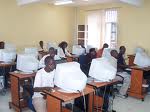Guided Democracy: Any Lessons from Rwanda?


By John A. Akec

Several months ago, a friend kindly forwarded me an article by Sarah Boseley describing how Rwanda continues to thrive as a prosperous and a leading 'model' African nation, barely sixteen years after the genocide (Rwanda: Kagame stands firm. Rights? Yes, but put food on the table first, guardian.co.uk, May 28, 2010).
More often than not, prosperity is seen as a natural dividend of democratic governance, except that it cannot be said about Rwanda and other countries like South Korea, Singapore, Syria, and China, to count but a few.

As Sarah Boseley discovered, one does not go to Kigali to hunt for a model democratic idol in the same way the Britons don’t go to Scotland for sunshine:
"Democracy is good music but you need somebody with ears to listen to that music... Tell me about a family who spend the whole night looking at each other and wondering whether they will have something to eat. Are they thinking about anything else?" President Paul Kigame asks Sarah Boseley.
Kagame then questioned the wisdom of adopting the Westminster-type democracy as model for Rwanda.

Paul Kigame is not alone in this. Libya's Muamer El Gaddafi was once on record: "What Africans need is not democracy but schools, hospitals, and bore wells for clean drinking water."
This cynical view of democracy is reinforced by one definition of democracy from an African perspective, anonymously expressed tongue in cheek:
"Democracy is a Western luxury which a poor uneducated African cannot afford."
Rwandan economy is largely agrarian (employing 90% of population), a GDP per capita of $ 1,000 (based on purchasing power parity) and an economy growing at a rate 4.7% and which places Rwanda ahead of countries such as Zimbabwe, Eritrea, Ethiopia, Somalia, and Democratic Republic of Congo with respective per capita of $ 200, $ 700, $ 900, $ 600, $ 300; while falling closely behind better off African nations such as Uganda, Tanzania, and Kenya, and Sudan with GDP per capita (purchasing power parity) of $ 1,300, $ 1,400, 1,600, and $ 2,300 respectively (CIA Facts Book, 2010).

All this achievement is against a backdrop of troubled history of ethnic violence and genocide in which nearly a third of Tutsi minority population of Rwanda lost their lives in 1994. This was followed by accusations of gross human rights violation by Tutsi's dominated Rwandan Patriotic Front (RPF) and its allies in Eastern Democratic Republic of Congo (DCR) against native Congolese and dissident Hutus, and the pillage of DCR's resources in form of illegal mining of diamonds and Coltan (short for columbite-tantalite, a metallic ore used in manufacture of components of mobile phones and consumer electronics products).
This year, Rwanda's ranked in World Press Freedom Index as the third worst African country that oppresses freedom of press (169th) (ahead of Somalia, 161st ) and only beaten by Eritrea (178th) and Sudan (172nd). It got to this unenviable position through the closure of a major opposition newspaper, murder of Umuvugizi newspaper deputy editor, Jean-Leonard, and refusal to allow the registration of a political party and house arrest of its Hutu leader ahead of presidential election in August 2010.
And the fact that Paul Kagame (a Tutsi) was re-elected in August 2010 for a second seven-year term (2010 to 2017) by a large margin of 93% against his rivals in a country where Hutus form 84% of population and Tutsis 14% is itself an African miracle if the elections were truly free and fair. This huge margin could either be a good thing (an enlightened majority voting into the office a member of a minor group, an African and world's rarity); or a bad thing (an oppressive minority rule manipulating election outcomes for its own good, a more likely possibility).
While Kagame regime keeps the IMF, investors and donor community sweet, we know little about how the composition of Rwanda government is representative of its ethnic groups, especially how the majority Hutus are given a fair representation. Now, someone may ask: is it the foreigners alone who point out these issues?
Getting away from this microscopic view of Rwanda and focusing the at big picture of the impressive economic performance so far, and counting on the quasi-democratic countries such as Singapore and South Korea (that is, assuming that good standard of living for an average citizens is better than free talk for all), we wonder if this sort of model can work for Sudan or South Sudan.
Some of the questions we might like to ask may include the following:
Is a benevolent dictatorship with elements of democracy a
solid path to democracy?
Is there a form of democracy which is more appropriate for
Sudan than Western-type democracy?
As Kagame implies, is the strong president model of South Korea and Singapore a proper blend and better choice for Sudan? What about Obama's warning that Africa does not need strongmen but strong institutions?
Will it lead to democracy or will it lead to malevolent dictatorship?
How can the path be assured? What role can church play as a custodian of democracy and a voice for the voiceless within such setting? How could a strong church influence the path? In the past a strong church as not always been servant-leader
oriented.
We may also ask: what is important? To be allowed to express your opinion freely, vote for party of your choice? Or entrust all your rights to self-selected, self-righteous individuals?
Putting it in other way: why is Western type democracy not a fix for African political and governance needs bearing in mind, according to Winston Churchill, that "… democracy is the worst form of government except all the others that have been tried"?
Space will not allow to critically examine why there is a common belief (not amongst Africans alone but Europeans as well) that democracy is a European luxury which poor, largely uneducated African nations cannot afford. Here is a partial answer.
It took Europe centuries to develop democracy and embed its core values in its traditions and cultures by fighting hard against aristocracy, absolute monarchies, and church restrictions on freedom of thought. Much of democratic foundation in Europe and Americas is traceable to 17th and 18th Century Enlightenment Movement. This movement promoted the ideas of reason, freedom of thought, and democracy as central values of a [civilized] society on which the legitimacy and authority should be derived. Enlightenment was later defined by the German Philosopher, Immanuel Kant, as right to use one's own intelligence (http://en.wikipedia.org/wiki/Age_of_Enlightenment):
"Enlightenment is man’s leaving his self-caused immaturity. Immaturity is the incapacity to use one's intelligence without the guidance of another. Such immaturity is self-caused if it is not caused by lack of intelligence, but by lack of determination and courage to use one's intelligence without being guided by another."
The importance of using human reason and intelligence is also reflected by Voltaire statement: "Those who can make you believe absurdities can make you commit atrocities."
In other words, if you believe what is nonsense, you will be engaged in very nonsensical activities or deeds. This is an inherent criticism of church's orthodoxy at the time which restricted freedom of religious thought thus harming scientific thoughts that attempted to explore big questions in relation to nature of God and the origin of universe (refer to works to Kepler, Galileo, Isaac Newton and others).
The effect of Enlightenment Movement, among others was the call for enlightened reorganization of the society (through collectively agreed laws and regulations, for example). This is what we might describe in today's jargon as informed decision-making, the rule of law, and knowledge economy.
If we have to understand why Western European democracy is unfit for Africa it is partly because the notion of democracy is far deeper than the superficial notion that it is merely forming political parties and contesting free and fair elections.
If the voters lack conviction as to why they are voting for this party and not that party, and if it is nothing other than a well informed/enlightened choice, then democracy is highly compromised. In other words, if democracy has to succeed in Africa, and Sudan, it must be accompanied, if not preceded by Africa's own version of Enlightenment Movement.
However, enlightenment cannot come about without education and allowing the freedom of thought (or fighting for it). It also goes without saying that the reference to education in this context transcends the usual narrow meaning of ability to read and write, and hold an academic qualification in a specialised field, but to also encompass what Mosses Mendelssohn (a Jewish philosopher) described as education in ability to use reason [fruitfully].
To help us further in our understanding of enlightenment's role in democratic practice, one may refer to Henry Louis Mencken, an influential American Journalist fiction writer in 1920's who defined of democracy as "…the theory that the common people know what they want and deserve to get it good and hard."
Add to it, the Aristotelian view of democracy as the system of government that empowers the poor more than the rich because the poor in any society are the majority and that the will of the majority must prevail.
Now in Sudan and Africa in general, the majority of the citizens are not just poor, but uneducated. This squares the vicious circle: the self-selected ruling elite will have no way of influencing things should they follow the principle of majority rule. The elite therefore must craft other clever means (including use of force and subversion of justice) in order to control political power while providing the masses with what they need most – food and clean drinking water. This, in my opinion, is core strategy of the guided democracy – some of which may lead to birth of benevolent dictatorship and others to malevolent dictatorship.
The Singaporean version of guided democracy, which is the model that aspires Paul Kagame (as it one time did aspire Isaias Afewerki in his early years in power) has ensured that People's Action Party (PAP) dominated by ethnic Chinese controls the power since 1959 to this date. This was achieved not just by controlling the media (by closing down independent newspapers and radios) but by also by controlling the electoral process and erecting social systems (such as housing) and administrative structures that make it impossible for other minority groups such as Malay, Indians, or Eurasians to form their own viable parties.
In this context, elections and other democratic institutions (such as parliaments) are merely means to obtain legitimacy. Unlike other guided democracies, PAP uses legal action to persecute its opposition, as opposed to locking up of opposition figures by security forces as happens in Rwanda (this was perhaps why the move to prosecute South Africa Zuma's ahead of presidential elections led to accusations of election manipulation and abuse of power against the sitting former president, Thabo Mbeki, which subsequently led to his impeachment).
Back to Rwanda's model, we do not fail to notice that Paul Kagame's regime suffers from Wolf-preacher syndrome that afflicts all quasi-democratic systems: in one moment the leader is preaching democracy and in the next moment he is a roaring lion ready to devour anyone who tries to practice democracy. For instance, compare the earlier views by Kigame about democracy and an excerpt from his foreword on his party website (http://www.rpfinkotanyi.org/foreword):
"We struggle for democracy because we have no doubt that it is the only proven method of good leadership that gives citizens say in their own affairs and enables them to participate in the governance of their country. It gives them an opportunity to elect leaders of their choice, to check on their performance and to participate in decision-making."
His actions, though, say he believes none of all he has just said.
Thus, while agreeing that Western European model lacks the supportive environment in which to thrive in Africa (such as an enlightened society that enthrones values of reason, free speech, rationalism, and informed-decision making at individual and collective level), it is also hard to accept the Wolf-preacher model of Singapore, Syria, Rwanda and the likes. Each nation must therefore create its own conditions for its own version of democracy to in order thrive. Moreover, we must bear in mind that rarely can any nation this day and age find its way to the future without the interference by big business and the vested interests of the global powers.
The next question is how can we bring about an African version of enlightenment movement? This is a subject for an essay for another time. Suffice to say that the church should teach and encourage the citizens to practice those values on which democracy may rest (honesty, fairness, reason, accepting defeat etc); and that the political parties begin to practice what they preach: that is, apply the democratic principles within the party. Europe's Enlightenment Movement owes much to Freemasons in putting those principles in practice. The African Church, political parties, and civil society organisations can play the same role.
Are there signs that African Age of Enlightenment is about to materialise? Yes, there is plenty of evidence that such enlightenment movement is just around the corner, if it is not already here. When we become interested in ideas, it means we have caught the virus, so much for our own good.

